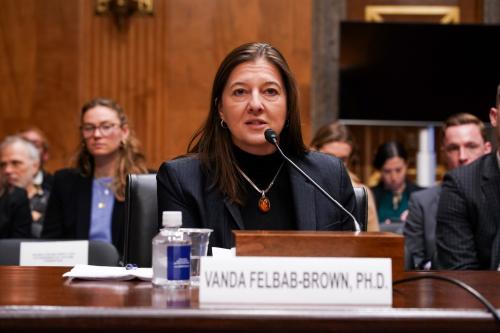Thank you. It is good to be back in Atlanta. Although I found serving the Federal Government very satisfying and challenging—especially in times dealing with terrorism and corporate scandals—Washington, D.C. can be a very tough town. After spending two and one-half years in Washington, D.C., I now understand what President Truman said about the city: “If you want a friend in Washington, then buy a dog.”
I want to thank Reverend Lowery for his efforts in organizing this symposium and for his leadership in focusing on the all important criminal justice area. Criminal Justice is an important area of concern for all Americans, especially African Americans. I am going to say something, and I do not believe it is hyperbole. Issues relating to criminal justice are as important to the lives of Americans—but especially African Americans—as any other issues we face. For African Americans—perhaps more so than other groups in our country from a purely statistical standpoint—criminal justice issues directly relate to our quality of life.
Rev. Lowery has been a leader and a visionary throughout his professional life. And that leadership continues with the establishment of the Joseph E. Lowery Institute for Criminal Justice & Human Rights. One of the goals of this Institute is to create a forum for the discussion, and hopefully eventual problem solving, of critical criminal justice issues.
I have been a federal prosecutor in the Reagan Administration and in the Administration of our current President—George W. Bush. In between, I have been a criminal defense lawyer. I have watched as this country has spent billions of dollars on so-called solutions to the elusive crime problem. Yet, our fellow citizens and neighbors continue to be plagued by unacceptable levels of violent crime. I have seen so-called experts congratulate themselves and say to each other: “We are on the right track to solving the crime problem.” But violence and mayhem continue to plague ordinary folks, especially African Americans. These experts ignore what Will Rogers once said about being on the right track, “Even if you are on the right track and you sit there and wait, you will eventually get hit by a train.” And, ladies and gentlemen, that is what is happening to us. We continue to stand on the track after having been run over by the crime train. African Americans are still disproportionately affected by violent crime in dramatic ways that adversely effect the quality of our lives.



Commentary
Criminal Justice Reform
October 10, 2003